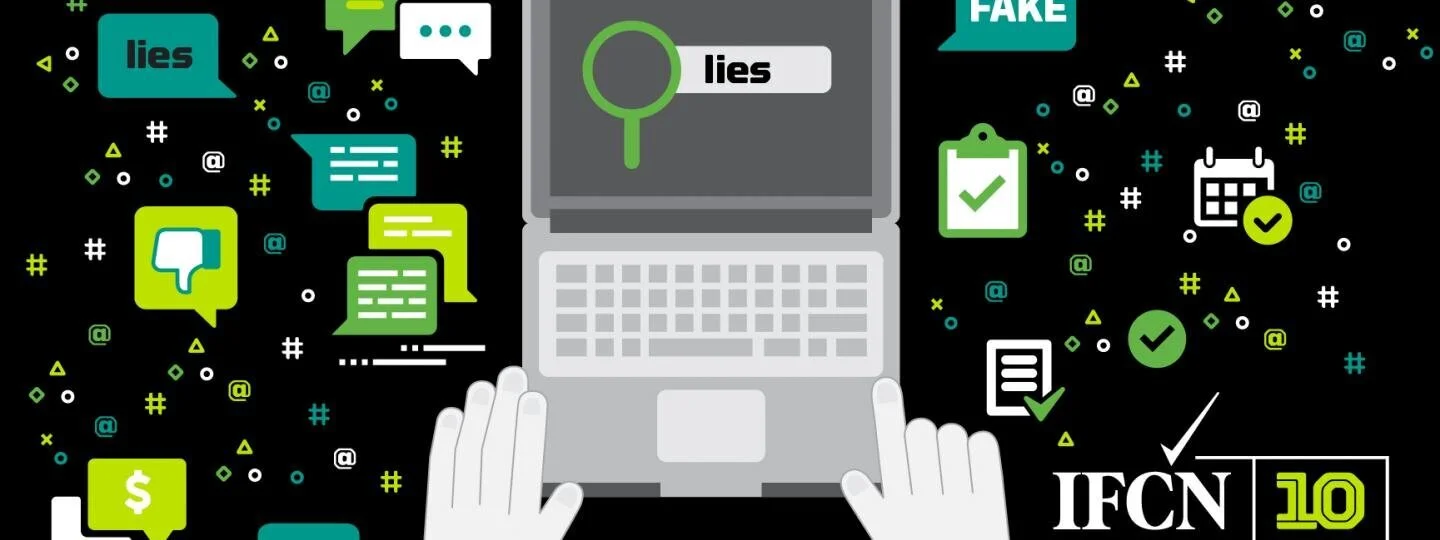Oštro Becomes the First Slovenian Signatory to IFCN’s Code of Principles
Oštro.si editorial office
Oštro’s fact-checking project Razkrinkavanje.si that is dedicated to verifying the authenticity of claims circulated in the media respects the five principles of the Code launched by the IFCN, a forum for fact-checkers worldwide hosted by the non-profit media organisation Poynter Institute.
The International Fact-Checking Network (IFCN), a unit of the American non-profit media organisation Poynter Institute since 2015, is currently the central organisation focused on establishing and developing fact-checking worldwide. It also stands astride the methodology and ethical principles of media organisations that are signatories to IFCN’s Code.
At the end of November 2020, the IFCN evaluated that Oštro’s fact-checking project Razkrinkavanje.si complies with its Code of Principles. Oštro, as a verified signatory to the Code – and the first such media organisation in Slovenia – thus joined the ranks of more than 80 international teams that fact-check statements and other claims circulated in the media. Among them are fact-checking organisations, such as AP Fact Check, Reuters, The Washington Post Fact Checker, PolitiFact and Snopes (USA), AFP fact checking and Le Monde Décodeurs (France) and Correctiv.org (Germany).
In early September, Oštro filed the application to be verified as the signatory to IFCN’s Code, putting forward its Razkrinkavanje.si project launched in May 2019. The application was then evaluated by IFCN’s external assessor and, finally, confirmed by the IFCN Advisory Board composed of 15 members from media organisations worldwide.
Oštro in the club of bona fide fact-checkers
During its evaluation process, the IFCN confirmed that the Razkrinkavanje.si project respects more than 30 criteria in five different fields: nonpartisanship and fairness, transparency of sources, transparency of funding and organisation, transparency of methodology and a commitment to open and honest corrections.
The external assessor was of the opinion that Razkrinkavanje.si fact-checks all content and statements using the same standard for every fact check, regardless of the topic and persons involved. She found that, whenever possible, Razkrinkavanje.si uses several sources, especially primary sources, and also cross-checks them. According to her assessment, Razkrinkavanje.si is not affiliated with or supports any political party, politician or political candidate.
She also explained in her comments that Oštro is in the process of adopting a code that will contribute to fostering fact-checking and the compliance with the highest journalistic standards. And while IFCN still held Oštro’s application under review, Oštro’s Code of Conduct was published on 24 September and is available in three languages at Oštro.si. The Code contains key principles, guidelines and rules pertaining to journalistic work at Oštro.si, including any updates or corrections.
In her conclusion, the external IFCN’s assessor underlined that although Oštro’s Razkrinkavanje.si project is a work in progress, it nevertheless “proved itself worthy of joining the network. In only one year it managed to establish itself as an important pillar of transparency and anti-fake news in the region. Their methodology and fact-checking are based on the highest principles of journalistic ethics.”
Oštro’s founder Anuška Delić commented that the status of a verified signatory to IFCN’s Code primarily means “a great recognition for Oštro’s editorial and journalistic team of Razkrinkavanje.si project that has been separating the wheat from the chaff in the Slovenian media landscape for merely a year and a half, while, on the other hand, it flies in the face of those who think that the project is a fruit of some conspiracy theory”.
IFCN grants the signatory status only to media organizations that regularly publish nonpartisan reports on the accuracy of statements by public figures, major institutions, and other widely circulated claims of interest to society, and that have in place transparent and clear editorial procedures, professional standards and other compulsory elements of their work. An organisation that is controlled by the state or political parties as regards its editorial policy can therefore not acquire the signatory status.


